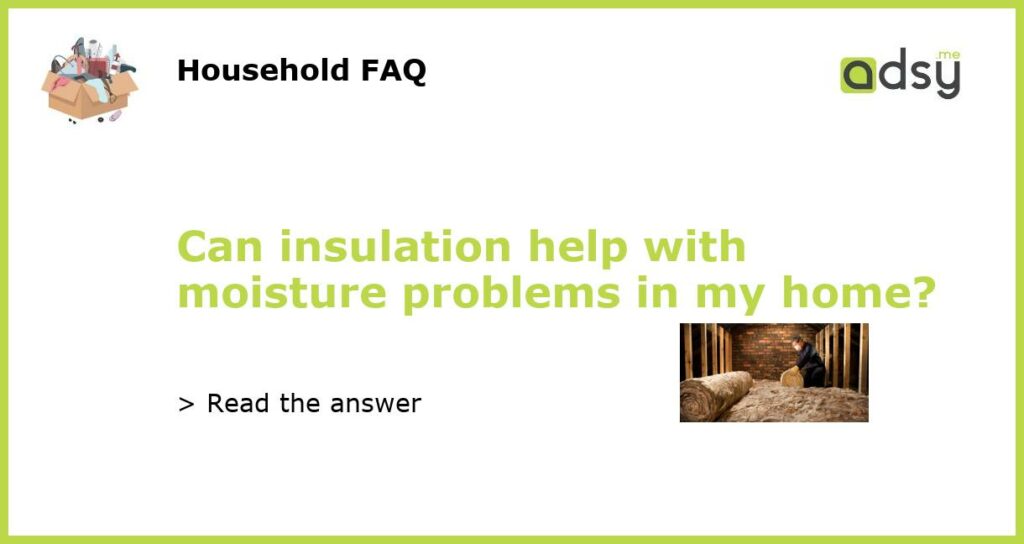Insulation and Moisture Problems: How They’re Connected
Moisture problems in the home can be a real headache for homeowners. From mold and mildew growth to structural damage, excessive moisture can cause a range of issues. One solution that may help with moisture problems in the home is insulation. In this article, we will explore how insulation can address moisture issues and improve the overall comfort and energy efficiency of your home.
The Role of Insulation in Moisture Control
Insulation plays a crucial role in moisture control by creating a barrier between the interior and exterior of your home. When properly installed, insulation can help prevent moisture from seeping into your walls, floors, and ceilings. It can also help regulate humidity levels by reducing condensation on cold surfaces, such as windows and exterior walls.
Insulation works by slowing down the transfer of heat, which reduces the likelihood of moisture buildup. By keeping your home properly insulated, you can minimize the chances of moisture problems occurring in the first place. However, it’s important to note that insulation alone may not be enough to solve severe moisture issues. It should be used in conjunction with other moisture control measures, such as proper ventilation and waterproofing.
The Benefits of Insulation in Moisture Control
Insulation offers several benefits when it comes to moisture control in the home:
- Prevents condensation: Insulation helps keep the temperature of interior surfaces closer to the room temperature, reducing the chances of condensation and mold growth.
- Reduces the risk of water damage: By creating a barrier, insulation can minimize the risk of water damage caused by leaks or high humidity levels.
- Improves indoor air quality: Insulation can help reduce the likelihood of mold and mildew growth, improving the overall indoor air quality.
- Increases energy efficiency: Proper insulation can help reduce energy consumption, as it prevents the escape of conditioned air and keeps your home cooler in the summer and warmer in the winter.
- Enhances comfort: Insulation helps maintain a consistent temperature throughout your home, improving comfort levels for occupants.
Choosing the Right Insulation for Moisture Control
When it comes to selecting insulation for moisture control, there are a few factors to consider. The following options are commonly used in homes:
- Fiberglass insulation: This type of insulation is made from fine glass fibers and is widely used in residential construction. It is moisture-resistant and offers excellent thermal performance.
- Spray foam insulation: Spray foam creates an airtight seal, preventing moisture intrusion and reducing the likelihood of condensation. It also provides a high R-value, making it an efficient choice for insulation.
- Vapor barrier: A vapor barrier is a material that reduces the transmission of moisture and water vapor through walls, ceilings, and floors. It can be incorporated into the insulation system to further enhance moisture control.
Insulation can help address moisture problems in the home by creating a barrier and regulating humidity levels. It offers several benefits, including preventing condensation, reducing the risk of water damage, improving indoor air quality, increasing energy efficiency, and enhancing overall comfort. When selecting insulation for moisture control, consider options such as fiberglass insulation, spray foam insulation, and vapor barriers. Remember that insulation should be used in conjunction with other moisture control measures for optimal results.

